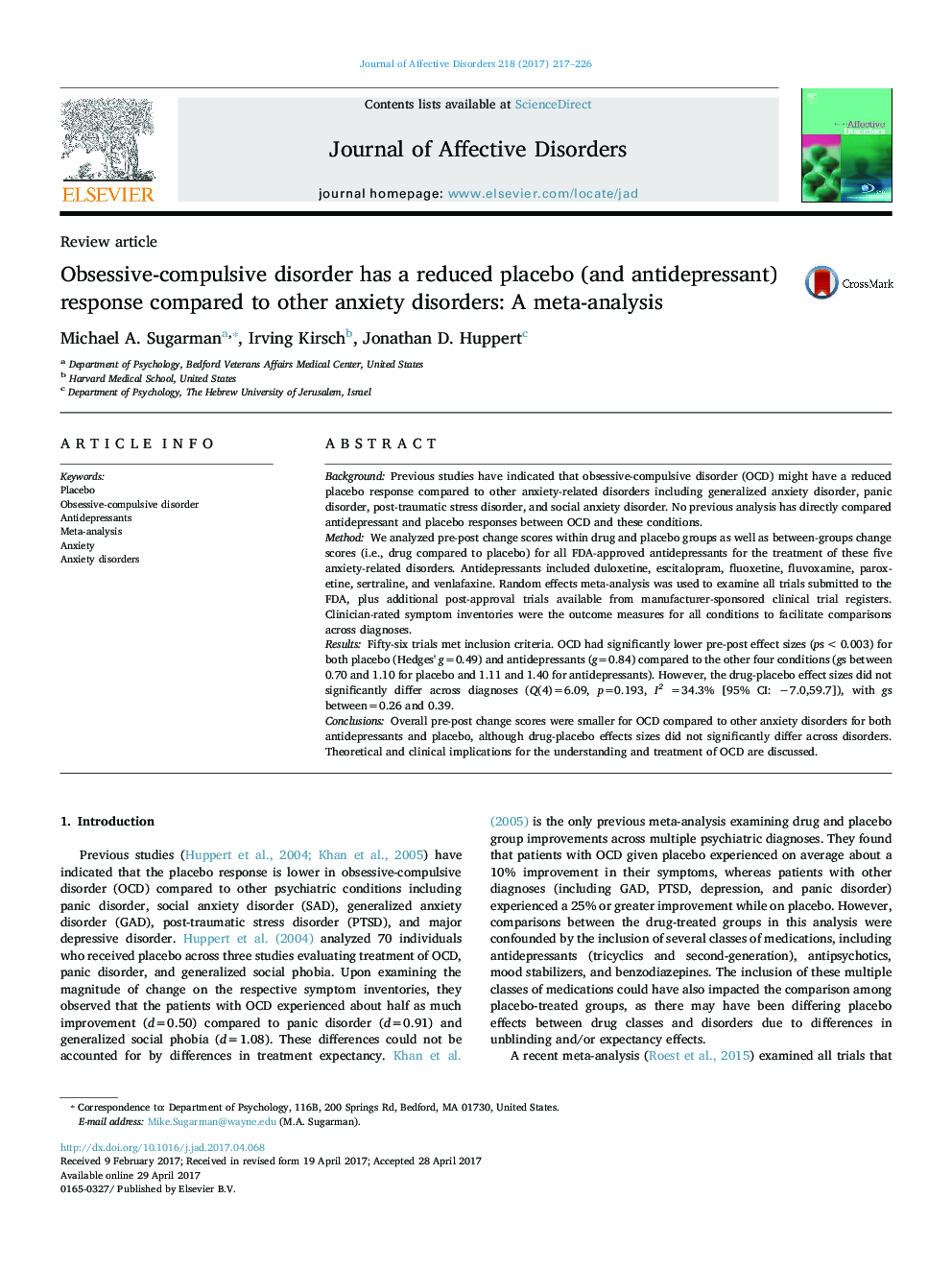| Article ID | Journal | Published Year | Pages | File Type |
|---|---|---|---|---|
| 5721950 | Journal of Affective Disorders | 2017 | 10 Pages |
â¢Obsessive-compulsive disorder responds less to placebo than other anxiety disorders.â¢Behavioral rigidity in obsessive-compulsive disorder may limit the placebo response.â¢Overall antidepressant-placebo effect sizes are similar across anxiety disorders.
BackgroundPrevious studies have indicated that obsessive-compulsive disorder (OCD) might have a reduced placebo response compared to other anxiety-related disorders including generalized anxiety disorder, panic disorder, post-traumatic stress disorder, and social anxiety disorder. No previous analysis has directly compared antidepressant and placebo responses between OCD and these conditions.MethodWe analyzed pre-post change scores within drug and placebo groups as well as between-groups change scores (i.e., drug compared to placebo) for all FDA-approved antidepressants for the treatment of these five anxiety-related disorders. Antidepressants included duloxetine, escitalopram, fluoxetine, fluvoxamine, paroxetine, sertraline, and venlafaxine. Random effects meta-analysis was used to examine all trials submitted to the FDA, plus additional post-approval trials available from manufacturer-sponsored clinical trial registers. Clinician-rated symptom inventories were the outcome measures for all conditions to facilitate comparisons across diagnoses.ResultsFifty-six trials met inclusion criteria. OCD had significantly lower pre-post effect sizes (ps<0.003) for both placebo (Hedges' g=0.49) and antidepressants (g=0.84) compared to the other four conditions (gs between 0.70 and 1.10 for placebo and 1.11 and 1.40 for antidepressants). However, the drug-placebo effect sizes did not significantly differ across diagnoses (Q(4)=6.09, p=0.193, I2 =34.3% [95% CI: â7.0,59.7]), with gs between=0.26 and 0.39.ConclusionsOverall pre-post change scores were smaller for OCD compared to other anxiety disorders for both antidepressants and placebo, although drug-placebo effects sizes did not significantly differ across disorders. Theoretical and clinical implications for the understanding and treatment of OCD are discussed.
